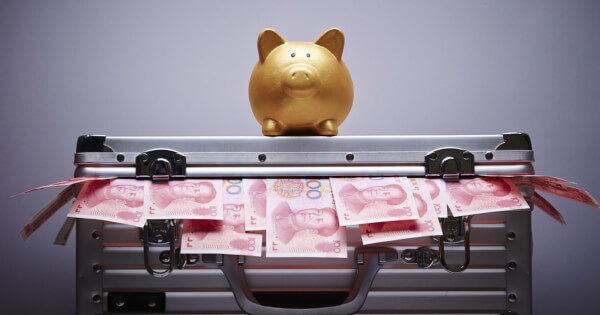Over the course of the Lunar New Year holiday, the Chinese central bank distributed an amount of its digital currency (CBDC) worth millions of dollars around the nation in an effort to encourage more people to use it.
A story that was published on February 6 in the Global Times, an English-language subsidiary of the state-run newspaper People’s Daily, said that over the Christmas season, about 200 “events” for the e-CNY were launched across the nation.
The government attempted to “encourage consumption” through these events, which marked the first time it had done so since the COVID-19 limitations had been recently loosened.
According to reports, many localities together dispersed CBDC worth more than 180 million yuan ($26.5 million) via various schemes including subsidies and consumption coupons.
According to one example provided by the source, the local government in Shenzhen distributed e-CNY worth more than 100 million yuan ($14.7 million), which was done in order to aid the catering business in the city.
According to a story published in China Daily on February 1st, the city of Hangzhou gave each citizen an e-CNY certificate worth 80 yuan (about $12). The entire cost of the gift to the city was close to 4 million yuan, which is equivalent to $590,000.
It turned out that a number of these projects were quite well received by the locals.
According to a story published by the Global Times, which cited information obtained from the e-commerce site Meituan, the e-CNY that the municipal government of Hangzhou distributed to its citizens as part of the New Year’s festivities were used up in only nine seconds.
Over the course of the last several months, the government has implemented a number of additional goals and features designed to increase the number of people using the CBDC.
On February 1st, top governing party leaders in the city of Suzhou established a provisional key performance indicator by the end of 2023 of having 2 trillion yuan worth of e-CNY transactions in the city. This equates to around $300 billion in current U.S. dollars.
The objective is lofty taking into consideration that the total value of all e-CNY transactions has barely surpassed 100 billion yuan ($14 billion) as of October, two years after the introduction of the CBDC.
The e-CNY wallet software added the capability to send “red packets,” also known as hongbao in China, in late December of the previous year in an effort to entice new users. These “red packets” include money and are traditionally given as gifts during the holiday season.
An upgrade was released for the wallet app at the beginning of January, enabling users to make contactless payments using their Android phones. These payments may be made even if the user’s device is not connected to the internet or has power.
During the month of December, a former official from the Chinese central bank said that the outcomes of the e-CNY experiments were “not ideal,” and that “use has been minimal, very inactive.”
Credit: Source link












































